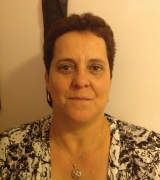
Peace Education: A necessity in Schools, Families and Communities
Sometimes, I wonder about the value of programs teaching for peaceful living in violent and conflict situations and ask myself whether programs such as Learning to Live Together and others become more of a luxury or a privilege in these situations. This question is not only true in violent situations but also applies in cases where children live in extreme poverty and unhealthy family conditions. Other times, I wonder about the positive roles faith, spirituality, and ethics may play as important vehicles and entry points to teaching non-violent ways of living and resolution of conflicts. It is my vision as an educator to confidently claim that we are able to bring up a new generation of world citizens who are more capable than the older generations to be generous, tolerant, empathetic, and able to forgive. This requires a set of skills and strategies that are not totally innate but are also learned in the family, schools, and community.
The above questions and wishful thoughts come to a halt when contemplating the recent events in the Middle East. It seems that the civil war in Syria and violence in Iraq (again) are taking the whole region into a grim future that is worse than the pre Arab Spring reality. There is constant media attention to fighting and political maneuvers but there is little talk about the humanitarian crisis and the impact of everyday violent reality on women and children and of course the elderly. Pictures of the influx of refugees from Syria and Iraq into neighboring countries are heart breaking. It is estimated that more than four million people, mostly women and children, are displaced or became refuges in neighboring countries since the start of the violence in Syria. The reality of the Palestinian population in Syria in particular is even more severe because these are becoming refuges for the second or third time.
During these hard and violent times, some might argue that we need to attend to basic human needs before we even talk about peace, forgiveness, and ethics education. Families who became refugees and others affected by extreme conditions such as poverty and natural disasters, do indeed need shelter, food, and water to survive and I argue this has to go hand in hand with education especially of the youngest. Education is as critical to decent living, respect and dignity, and justice even in these extreme realities.
The way forward once conflicts end or settle has to take into consideration the process of healing, reconciliation, and forgiveness. Strategies such as problem solving, negotiation, dialogue, and reconciliation need to be learned early in life to empower children and their families and to lift the human spirit. This only strengthens my belief that we have to prepare and engage families and children in a healing process and preparation towards that now, through both humanist and spiritual universal values.
When peace education programs are regularly integrated systematically in all levels of education, children are continuously gaining deeper understanding of the meaning of peace and learning new skills in how to handle conflicts in their lives peacefully and in more collaborative ways. This is a necessity in conflict ridden areas as well as those who live in more “peaceful” areas. Programs to teach how to live together in the community, school, and family are critical in setting a peaceful agenda and infusing peaceful values in educating young children in early years.